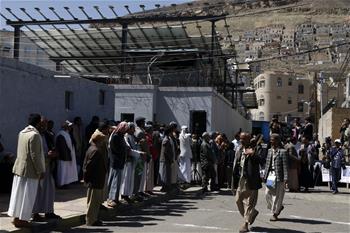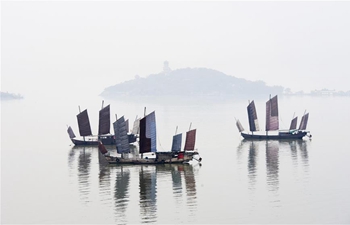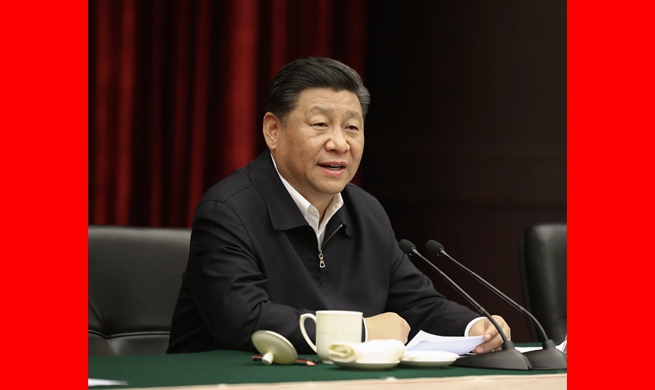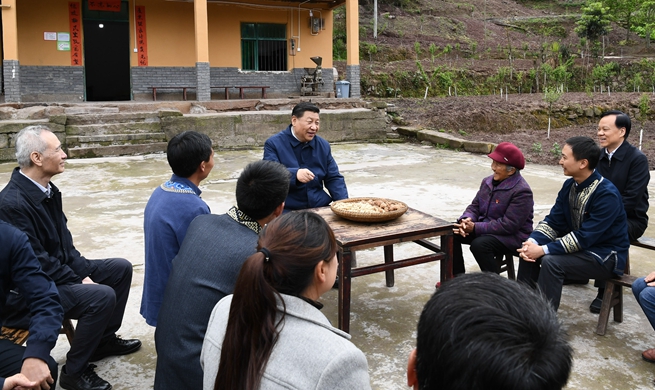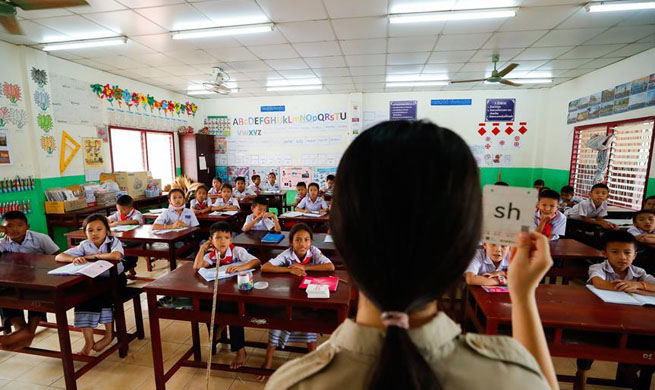by Raimundo Urrechaga
HAVANA, April 17 (Xinhua) -- A new wave of measures announced by Washington on Wednesday targeting Cuba is part of the U.S. "failed policy" toward the island, said Hassan Perez, a renowned Cuban academic.
"Trump's policy towards Cuba has a Cold War era vision that obstructs the normal course of relations between the two countries and also affects economic links and people-to-people contacts," Perez, a professor at the University of Havana's Center for Hemispheric and U.S. studies, told Xinhua.
On Wednesday, U.S. Secretary of State Mike Pompeo announced Washington was ending a 22-year waiver of Title III of the Helms-Burton Act which will allow U.S. citizens starting on May 2 to establish lawsuits against foreign firms operating on property in Cuba nationalized after 1959.
Hours later speaking to an audience of Cuban exiles in Miami, John Bolton, U.S. national security adviser said the administration was also regulating remittances to the Caribbean nation by allowing only 1,000 U.S. dollars every three months per person.
The senior official added the Treasury Department would also implement further regulatory changes to restrict U.S. citizens' non-family travel to Cuba, a move that could affect American cruise companies and airlines that operate in the island.
The U.S. has for decades banned its citizens from traveling to Cuba for tourism purposes and currently can only do so under 12 licenses that include educational, cultural and religious purposes, among others.
"The White House is applying a failed policy towards Cuba. The announcements made by Bolton in Miami will definitely have an economic impact but also affect other sectors in the U.S. that wanted a cultural, academic, scientific and even commercial rapprochement," said Perez.
The decision by President Donald Trump's administration to fully implement Title III was met with wide opposition from the European Union (EU) and Canada, whose companies have billions of dollars of investments in Cuba.
Hours before the announcement, Stefano Manservisi, the EU director-general for International Cooperation and Development, told reporters in the Cuban capital that Brussels will fully protect the interests of European companies and businesses in the island.
"The reaction of the European Union and Canada is very important because the Helms-Burton Act is an extraterritorial legislation in a world where trade is globalized. The U.S. doesn't have the economic or political power of 30 years ago," said Perez.
Cuban President Miguel Diaz-Canel tweeted a defiant message shortly after Pompeo's remarks.
"Activating Title III will not change the attitude towards those who hold the sword against us. We Cubans do not surrender, nor do we accept laws about our destinies that are outside the Constitution," he said.
Every president since Bill Clinton, including Trump, had suspended this section of this law which aims to cut Havana's trade with other nations.
"These measures don't lead to anything, history has enough examples that these punitive mechanisms just further rollback ties and cut short any sort of dialogue and possible progress between the two countries," added Perez.
The Cuban academic said Trump is surrounded by hardliners like Bolton, Republican Senator Marco Rubio and Mauricio Claver-Carone, head of Western Hemisphere Affairs at the National Security Council.
"These figures bet on hard power, punishing measures that ultimately seek to topple the Cuban government," he said.
Washington's move marked an intensification of U.S. pressure on Cuba and also appeared aimed at punishing Havana over its support for Venezuela's President Nicolas Maduro who the White House is openly seeking to oust from power.
"The U.S. seeks to subordinate Latin America to its interests and other countries like Cuba, Venezuela and Nicaragua are a stone in their shoe. The Trump administration has said their policy is marked by the Monroe Doctrine that promotes retaliatory and punitive measures," said Perez.
U.S.-Cuban relations have plummeted since Trump took office, partially rolling back the detente initiated by his predecessor Barack Obama and reverting to Cold War rhetoric, while maintaining re-established diplomatic ties.
Relations were also hampered by alleged "health incidents" on over 20 U.S. diplomats in the island, an issue that is still unresolved and Havana said it has been politicized to roll back bilateral relations.

